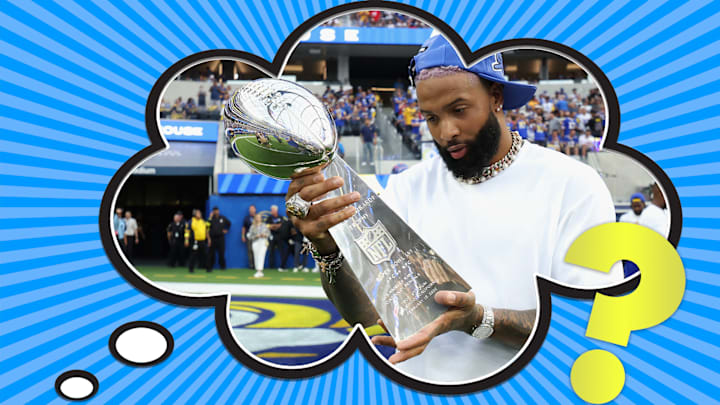In an era where streaming services have fractured television audiences, there’s still one guaranteed way to get tens of millions of people tuning in at the same time: the Super Bowl. Since 1967, the game has attracted football fans and casual viewers alike. Some of them lament the fact that the game airs on a Sunday, meaning they might not be able to celebrate as much as they’d like; others just opt to skip work, resulting in billions in lost productivity and as many as 17 million people using up a sick day to recover.
So why not air it on a Saturday instead? Why is the Super Bowl always played on a Sunday night?
In the earliest days of pro sports, it was considered poor taste to hold a game on a Sunday, traditionally a day of rest and religious observance. There were even state laws prohibiting baseball games being played on that day. In 1917, the managers of the New York Giants and Cincinnati Reds were arrested for defying the mandate.
Over time, however, religion and sports started to intertwine, with congregations building on the nation’s growing fascination with sports. Father John O’Hara, president of Notre Dame, once dubbed football “a new crusade” and that “play can be offered as a prayer in honor of the Queen of Peace.”
Slowly, state laws eased, and television broadcasters seized the opportunity to have a captive audience all weekend. But that still doesn’t explain why the NFL opts for Sundays.
In 2018, NFL Commissioner Roger Goodell addressed the issue. In a word, it’s ratings. The NFL simply feels the audience is bigger on a Sunday. “That [idea] has been around for a long time, people have talked about that,” he said of a hypothetical move to Saturday. “The reason we haven't done it in the past is simply just from an audience standpoint. The audiences on Sunday night are so much larger. Fans want to have the best opportunity to be able to see the game and we want to give that to them, so Sunday night is a better night.”
There are simply more distractions on a Saturday. People go out to eat, to see movies, to bars, to socialize. While that wouldn’t make much of a dent in a diehard fan’s ambition to see the game, it could curtail the portion of the viewing audience who treats it as another social event.
While Super Bowl Saturday is unlikely, one seemingly viable idea has been floated: moving the game to Presidents’ Day weekend, which would give viewers a built-in holiday on Monday to sleep it off.
[h/t Sportscasting]
